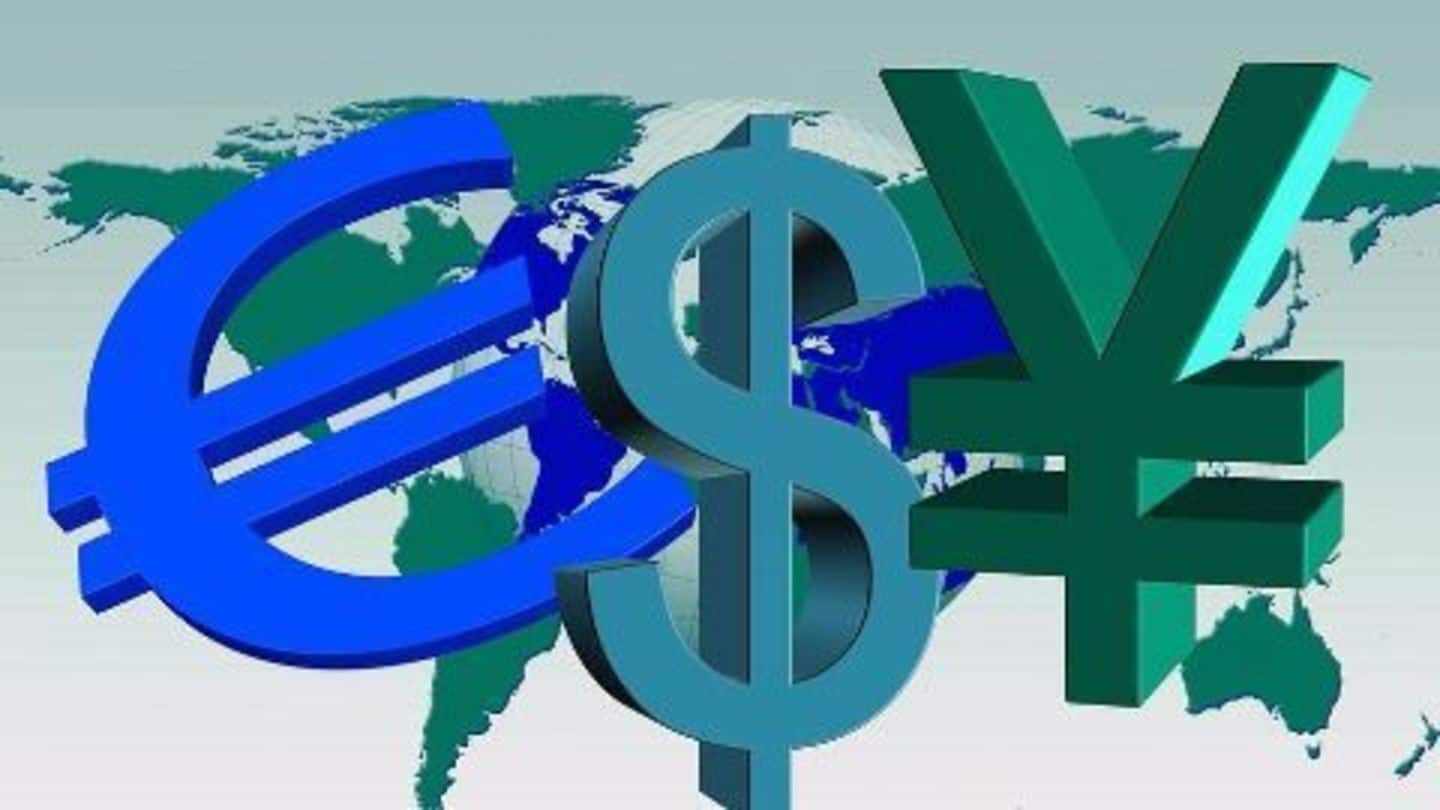
G-7 leaders pledge 'collective action' towards global growth
What's the story
G7 economies wrapped up the Japan summit, vowing to seek strong global growth. G7 leaders pledged to "collectively tackle" major risks to global growth and committed to a cooperative approach in beefing up policies to stimulate their sluggish economies. Comparing current economic situation to the 2008 financial crisis, Japanese PM Shinzo Abe appealed to his fellow leaders to act, to avert another global crisis.
G7
What are the G7 group of countries?
The Group of Seven (G7) is an informal forum of industrialized democracies representing around half the global economic output. G7 comprises Finance Ministers and Central Bank Governors of 7 countries: Canada, France, Germany, Italy, Japan, the United Kingdom and the United States of America. Formed in 1975, the group meets annually to discuss key issues related to global economic stability.
Information
Russia, a former G-7 member
Russia belonged to the G-7 forum or the then G-8 from 1998 to 2014, but was suspended after its annexation of Crimea in March of that year.
Participants
G7 Summit 2016
2016 G7 summit, the 42nd summit, was scheduled to be held in Japan from May 26-27. The participants include the leaders of the seven G7 member states and representatives of the European Union. Attendees: British PM David Cameron, Canadian PM Justin Trudeau, French President Francois Hollande, German Chancellor Angela Merkel, Italian PM Matteo Renzi, Japanese PM Shinzo Abe and the US President Barack Obama.
Agenda
Agenda of the 2016 summit
The main topics on the agenda, as set out by this year's Japan presidency, include the global economy, the refugee crisis, climate change and the fight against terrorism. Points of discussion also include trade, foreign policy, and maritime security. This year's summit had the participation of guest invitees which included, Bangladesh PM Sheikh Hasina, Sri Lankan President Sirisena and Vietnamese PM Nguyen Xuan Phuc.
26 May 2016
G7 on maritime security amid China's aggression
On the issue of maritime security, G7 leaders agreed that it was important to send a clear signal on the issue of maritime claims in the South and East China Seas. Japanese PM Shinzo Abe led discussion on the current situation in the Western Pacific. This comes amid China's aggression into disputed territories, claimed by Japan and several Southeast Asian nations.
Information
G7 concerned about North Korea
G7 demanded that North Korea fully comply with U.N. Security Council resolutions and halt nuclear tests, missile launches and other "provocative actions". Obama pointed to the threat from North Korea's nuclear and missile programs, saying the isolated state was "hell bent" on getting atomic weapons.
Information
G7 on climate change
On climate change, the G7 forum said they aimed to put into effect by the end of the year, the Paris climate agreement, in which almost 200 nations agreed a sweeping plan to end global dependence on fossil fuels.